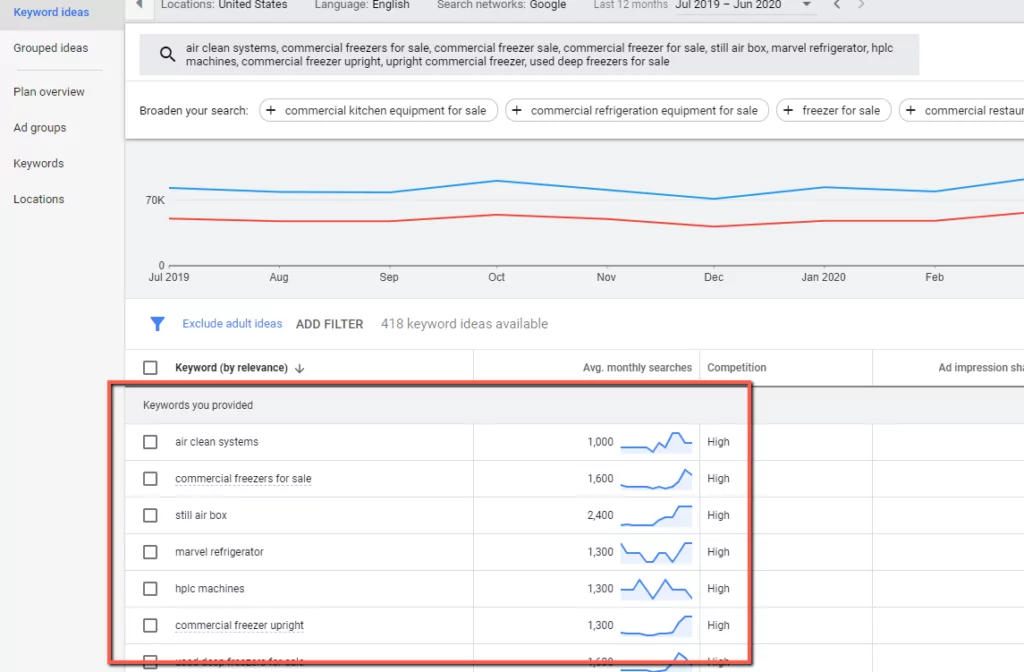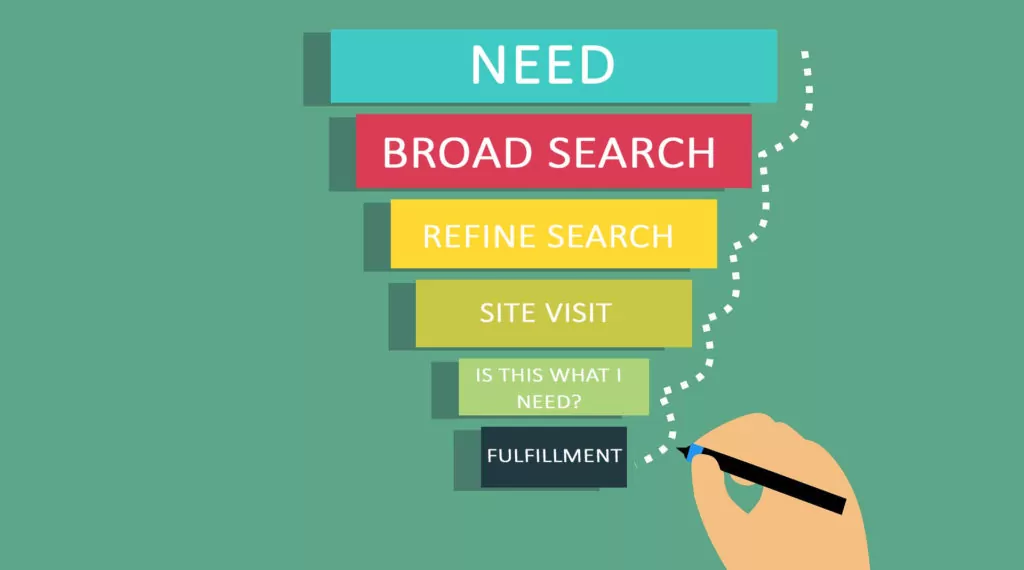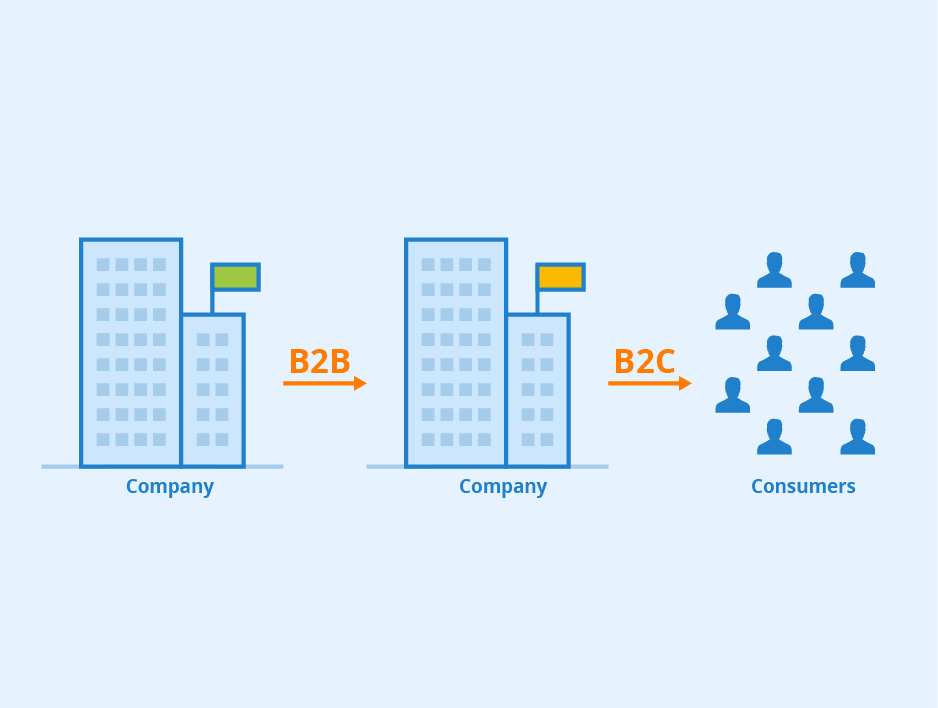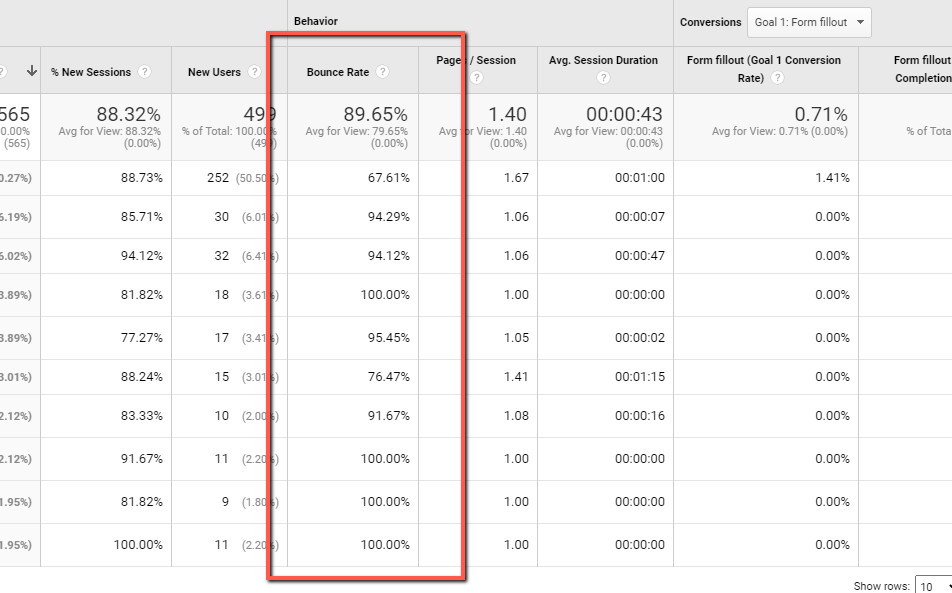B2B Keyword Research: Find the Best Keywords for Your Business
For business-to-business companies online, being able to find and target the right audience is critical to being able to grow long term and to remain competitive.
In the world of online marketing this means being able to find the right B2B keywords to help your site bring in traffic among key segments. It means being able to find the best keywords for your business.
And for that it’s necessary to build a B2B keyword research strategy and to find the right B2B research tools to help you discover areas where you can expand your search presence. Let’s go over some of the best strategies and industry tools used for growing visibility.
But first, what exactly are we talking about when we discuss B2B keywords?
Specifically, this means building out your site, and your site content with language and information that best matches the search terms your target market is using in online search. Being able to understand the behavior of people using search engines like Google and Bing means that you can optimize your site to ranking for the best B2B marketing keywords and to boost your search-engine-optimization (SEO) or pay-per-clicks (PPC). Search engine optimization remains one of the most popular methods of internet marketing as a way of helping businesses grow organically, and reliably growing ROI. Paid search ads aren’t far behind.
According to BrightEdge, these days traffic from search results makes up as much as 51% of all web traffic, and is even responsible for as much as 40% of all online revenue. Finding keywords, adjusting your site for about B2B SEO best practices, and optimizing your site content are some of the best ways for business-to-business based organizations to capitalize on this traffic.
B2B keyword research
Being able to do keyword research is an important part of any business’s search optimization strategy, but finding B2B SEO keywords is different. The language and search psychology for businesses and business decision makers can be very different from the search keywords that other businesses use.
Mondovo has put together an interesting list of some of the most searched and most popular B2B keywords:
- “b2b marketing” (27,100 global monthly searches)
- “b2b banking” (12,100 global monthly searches)
- “What is supply chain management” (12,100 global monthly searches)
- “What is supply chain” (5,400 global monthly searches)
- “what is b2b sales” (2,400 global monthly searches)
- “What does b2b means” (2,400 monthly searches)
Data from organizations like this and from WordStream’s similar list of keywords helps businesses understand which types of keywords pervade the business-to-business world of online traffic. These high-traffic keywords demonstrate the sort of language that you can use to help optimize your B2B keyword strategy.
This trends show that queries like question-based search queries, industry jargon definitions, and search keywords with specific jargon in general, are all pretty common. It also shows that business services are a big part of the B2B online space, as opposed to physical products or eCommerce.
In order to find the best keywords for your business, you’ll need to think specifically about who you are trying to sell to and what sort of language they might use to find you. It’s also important to think about which keywords accurately describe your brand or business and whether these can bring in enough traffic.
B2B keyword research tools
Being able to build out a search engine optimization strategy means using the right tools.
One of the most common tools is the Google Ads Keyword Planner tool. This free tool helps businesses set up and operate paid search ad campaigns as part of PPC advertising. Keyword planner can be used for B2B keyword research for both PPC and SEO.

You don’t need to be running a paid search ad campaign to used Keyword Planner, but if you are then you can get much more specific data for your keywords including average monthly searches. Using Keyword Planner for your B2B keyword research strategy can help you understand:
- Which keywords have the most search traffic
- Which keywords are most/least competitive
- Recommended bid ranges for keywords
Other tools can also help with finding keywords that best match business-to-business search habits and language. AnswerThePublic can help with finding auto-complete data for related search phrases and can help with understanding which question based queries might get traffic. Likewise some marketers use BrightEdge or SEMrush to bolster B2B keyword research strategies with tools that are designed to help with rank tracking, related keyword research, search traffic and more.
These tools aren’t necessary, and some give much the same information that Keyword Planner does, but they are options that are available. You can use these online keyword research tools for B2B focused searches and to help narrow down your audience.
Finally there is Google’s Search Console. This free tool helps marketers and webmasters track the organic performance of their website as well as to monitor for technical issues and search engine indexing status. Specifically, Google’s search console is used for SEO data and monitoring which keywords are bringing in traffic to a site. For SEO in particular Search Console is great for adjusting keyword strategy. The data that you can get from Search Console can help businesses discover new ranking opportunities, boost existing performance, and learn how exactly people are coming to their website.
How can you use Search Console for B2B keyword research?
For this, the most useful tool in Search Console is the performance report. The Performance report shows metrics about organic traffic coming to a business’s websites as data for how each page on the site is performing. In fact with the performance report you can break down data for individual URLs and individual elements including:
- Clicks. Which search queries are driving clicks to your site along with how many clicks that each keyword is getting. This metric reflects the number of clicks keyword that results in users visiting your site’s property.
- Impressions. This means how many links to your site a saw in Google search results for certain keywords.
- CTR. The click-through-rate is a measure of how many clicks for a keywords you receive divided by the number of impressions.
- Average position. This means average position of the topmost results your site has gotten for certain keywords.
With this information, it’s possible for marketers to use Search Console to discover your most important existing B2B keywords in order to inform your SEO campaign. The business-to-business value with these is that they give online companies ways to directly measure their SEO campaign success. Plus they let businesses find data to further fine-tune keyword research. With an expert SEO campaign a business can discover keywords with a high CTR to understand which sort of searchers best bring people from the SERP into their site. High-value keywords with lots of impressions but a relatively low CTR could represent flaws in the business’s SERP presence.
After you’ve already completed your first round of B2B keyword research and optimization, you can follow along with results in Search Console. It can provide returning data which can be used to make adjustments and fine-tune your campaigns further. Plus, Search Console allows businesses to sort each metric by high-to-low or visa-versa, mean businesses can also do period-over-period (POP) comparisons to determine changing trends.
Understanding searcher intent for your B2B keyword strategy

We’ve gone over some important general trends for B2B keywords, and we’ve gone over the most popular B2B keyword research tools. But let’s talk about what sort of strategy is best for moving ahead on your marketing campaign.
To find the best keywords for your business you’ll want to start by finding the keywords you want to rank for, and then incorporating them into your search engine optimization campaign.
Keywords containing terms like “wholesale,” “bulk,” “commercial,” “OEM” are a great start and are great at indicating to your target shoppers/clients the sort of services you offer. Think specifically about what your business’s main niche is and think about what sort of language common target business shoppers might use to begin their shopping funnel. The best strategy is to recall what sort of elements and specifics matter to searchers and to include them in your content and brand language.
- Selling points and benefits. Think about things that set you apart. Elements like free shipping, wholesale discounts, help/troubleshooting services, product installation, liaison services, product customization, employee training, etc. Use B2B keyword research tools like Keyword Planner or Search Console to see if these words can drive traffic to your site.
- Details like: materials, product/service types, industrial tolerances, part number, region, target industry, manufacturer, ISO identifiers, regulation certification, etc. These elements may represent areas where you can perform more keyword research to find ever more valuable traffic.
With an expert SEO team or by hiring an SEO agency, it’s possible to use existing keyword rankings, expert keyword research strategies, and user search behavior knowledge to find the best keywords for your business. Finding the best keywords for your business means being able to target potential clients that are looking for exactly what you offer.
This means understanding searcher intent.

Via Seobility
The best B2B keywords will be the ones where the intent of the searcher is clear, and where the intent matches with the content on your site. If the intent behind your keyword traffic doesn’t match with your site’s content, then you could be wasting effort on visitors who are not satisfied with what you offer. If visitors are bouncing of your site, then it could mean that your keyword research strategies aren’t working. This will lead to a higher bounce rate.
Google Analytics can help you make sure your keyword research is helping you find the best B2B visitors by tracking your bounce rate. If your bounce rate is high, it means that people aren’t satisfied with what they see when they land on your site, and are leaving right away. This means that even if you are ranking well or getting lots of search traffic, you might be ranking for the wrong keywords.

Don’t just aim for the highest-traffic, broadest keywords. Instead, focus on finding keywords that match your services, products, or offerings. When creating the content on your site, the emphasis should be on the ultimate purpose of the page. Gear overall direction of your B2B keyword strategy toward some perceived visitor goal/intended use. If users are happy with your content, they’re far less likely to bounce.
Think beyond just what your service is, but how it can benefit your clients and help them attain their own goals.
Learn More About B2B Keyword Research Strategies
The average click-through-rate for the #1 position on Google is close to 20%. For the 2nd spot, it’s only about 10%. In fact, 75% of searchers never go past the first page of search results.
This is why having an expert understanding of your B2B keyword research strategy is important. Your keywords will be the foundation of your entire SEO campaign, and your search traffic.
Learn how to develop a B2B keyword research strategy and how to expand your business’s SEO. For marketers, content creators, in-house search optimization experts, or company blog writers, using these strategies can help you find the best keywords for your specific business space.
But for others, search engine optimization is important enough that it’s one reason why hiring an SEO company is such an easy option. SEO’s return on investment has made it one of the most consistently popular digital marketing strategies with as many as 32% of marketers claiming it offers them the highest ROI – even compared to paid search, email marketing, and social media. An SEO agency offers businesses the opportunity to manage other operations will getting professional services that maximize their results.
Plus an SEO agency can help customize a comprehensive B2B keyword research campaign that helps you target your specific business KPIs. Either way, search optimization is critical. Few businesses ignore it, knowing that with good search presence you can:
- Maintain dominance in a specific market
- Built a return client base or improve client loyalty
- Grow traffic to the site across the organic segment with high-value, high-conversion keywords
- Engage with potential clients and business executives at the top of their search funnel
- Improve sales and revenue naturally and affordably, without an expensive ad budget
Search engines are still generating 65% of website traffic and nearly 70% of website revenue (on a last-click basis). Meaning that being able to manage a complete, and highly effective SEO campaign is crucial for many small, medium, and even large businesses.
Contact us for more information on getting B2B keyword research strategies, or to learn about getting SEO services for your site.
